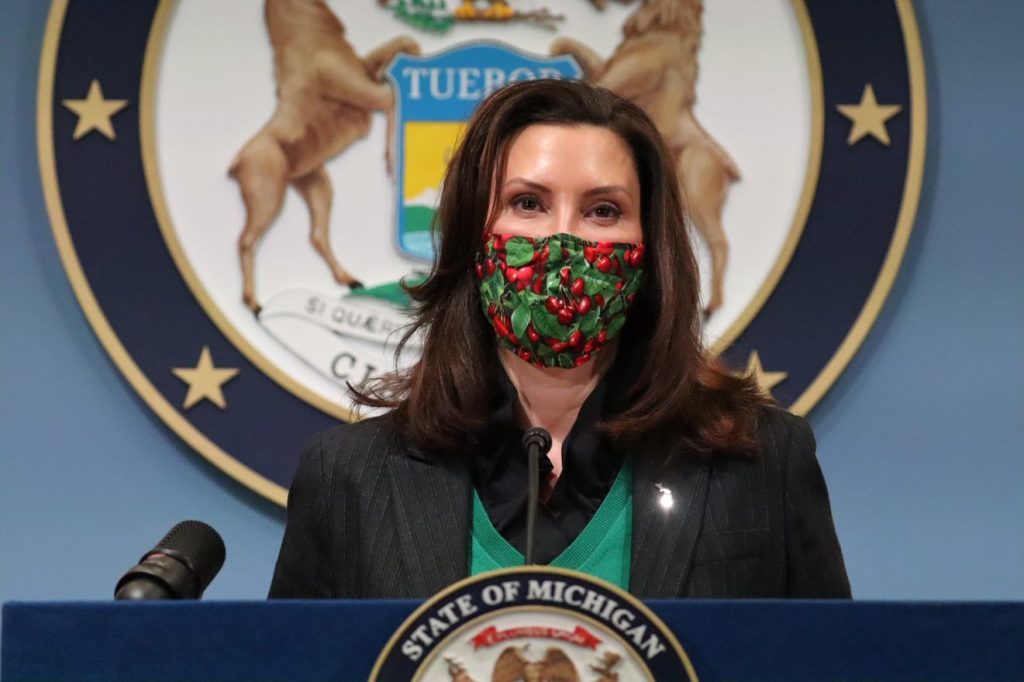Restaurants Can Reopen With Limited Capacity on February 1
Speaking at a news conference Friday morning, Governor Whitmer also detailed problems with vaccine rollout.

The state health department will allow indoor dining to resume, with restrictions, starting on February 1.
Michigan has seen a dramatic drop in COVID-19 infections from the height of the second wave this fall. Speaking at a news conference Friday morning, Governor Gretchen Whitmer says the state has seen a 70% reduction in cases.
“On November 15, when the pause was announced, Michigan had 734 cases per million,” says Whitmer. “Now we’re down to 177 cases per million.”
Due to the drop in new infections, the state health department will allow restaurants to resume indoor dining on February 1 with restrictions on capacity and a 10 p.m. curfew. Concessions at casinos and movie theaters may also reopen on the same date.
Not everyone believes the reopening of indoor dining goes far enough. Senate Majority Leader Mike Shirkey (R-Clarklake) told Bridge Michigan an unrestricted reopen is in order.
“Granting restaurant owners an arbitrary and meager percentage of operating capacity will not help them bring their businesses back from the brink of failure,” Shirkey says. “If the governor thinks 25% is adequate, perhaps Gov. Whitmer should only receive 25% of her salary.”
Health officials caution that the gradual reopening is not an indication that they believe the worst of the pandemic is over. They’re still concerned about the new B.1.1.7. strain that is more contagious. An outbreak in Washtenaw County has already been linked to the new variant.
Chief Medical Executive Doctor Joneigh Khaldun says now is the time to stay vigilant and follow proper health precautions.
“If this new variant becomes more common, as many scientists have said it could, it will mean more cases, more hospitalizations, and, unfortunately, more deaths,” says Dr. Khaldun.
Vaccination Delays Cause Frustration
Fortunately, the Pfizer and Moderna vaccines are effective against the new strain, though Michigan, like many states, is experiencing delays in their vaccine rollout. Supply and distribution have hampered efforts to inoculate the elderly and frontline workers.
“Right now we have we’re getting as many vaccines per week for the state as we want for a day for the state,” says Whitmer.
There’s been some concern that the vaccine has been going to those who don’t qualify under state and Centers for Disease Control guidelines. Dr. Khaldun says the fragility of the vaccine means it has to be used once it’s thawed, which means some people who aren’t technically eligible will get the shot.
“Any vaccine that’s placed into an arm is not a wasted vaccine. No human being is fully immune,” Khaldun says. “So we are encouraging people to please don’t waste the vaccine. We don’t want it sitting in freezers. We don’t want it expiring.”
Whitmer says she’s optimistic the state will see a dramatic increase to the 60,000 doses per week Michigan is currently getting.
In a surprise move on Friday afternoon, Michigan Department of Health and Human Services Director Robert Gordon announced his resignation on Twitter. Governor Whitmer appointed Elizabeth Hertel as the new director of the agency. She’s been working for the state health agency since 2013.
Trusted, accurate, up-to-date
WDET is here to keep you informed on essential information, news and resources related to COVID-19.
This is a stressful, insecure time for many. So it’s more important than ever for you, our listeners and readers, who are able to donate to keep supporting WDET’s mission. Please make a gift today.
